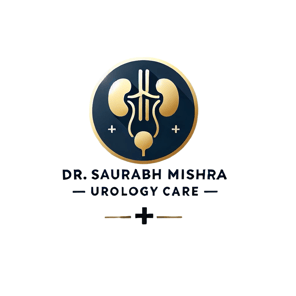Testis Cancer
Testis cancer, also known as testicular cancer, originates in the testicles (testes), which are part of the male reproductive system. The testicles produce male hormones and sperm. Testicular cancer is relatively rare but is the most common cancer in young men aged 15 to 35.
Types of Testicular Cancer
Germ Cell Tumors (GCTs):
The most common type, accounting for about 95% of cases.
Subtypes include:
Seminomas: Generally slower-growing and less likely to spread.
Non-seminomas: More aggressive and more likely to spread. Subtypes include embryonal carcinoma, yolk sac tumor, choriocarcinoma, and teratoma.
Stromal Tumors:
Develop in the supportive and hormone-producing tissues of the testicles.
Includes Leydig cell tumors and Sertoli cell tumors.
Secondary Testicular Cancers:
Rare, these originate elsewhere in the body and metastasize to the testicles.
Risk Factors
Undescended Testicle (Cryptorchidism): Testicles that do not descend into the scrotum increase the risk.
Family History: Having a family member with testicular cancer.
Age: Most common in men between 15 and 35 years old.
Race: More common in Caucasian men.
HIV Infection: Higher risk in men with HIV.
Previous Testicular Cancer: Increased risk of cancer in the other testicle.
Symptoms
A lump or swelling in either testicle.
A feeling of heaviness in the scrotum.
A dull ache in the lower abdomen or groin.
Sudden collection of fluid in the scrotum.
Pain or discomfort in a testicle or the scrotum.
Enlargement or tenderness of the breasts (gynecomastia).
Diagnosis
Physical Examination: Checking for lumps, swelling, or tenderness.
Ultrasound: High-frequency sound waves to create an image of the testicles and identify abnormalities.
Blood Tests: Measuring tumor markers like alpha-fetoprotein (AFP), human chorionic gonadotropin (HCG), and lactate dehydrogenase (LDH).
Radical Inguinal Orchiectomy: Surgical removal of the affected testicle to examine for cancer cells.
Imaging Tests: CT scans, MRI, and chest X-rays to determine if cancer has spread.
Staging
Staging determines the extent of cancer spread:
Stage I: Cancer confined to the testicle.
Stage II: Cancer has spread to lymph nodes in the abdomen.
Stage III: Cancer has spread to other parts of the body, such as the lungs or liver.
Treatment Options
The choice of treatment depends on the stage and type of cancer, as well as the patient’s overall health and preferences.
Surgery:
Radical Inguinal Orchiectomy: Primary treatment for almost all stages and types.
Retroperitoneal Lymph Node Dissection (RPLND): Removal of abdominal lymph nodes, often for non-seminoma cancers.
Radiation Therapy:
Mainly used for seminomas, as they are more sensitive to radiation.
Targets remaining cancer cells post-orchiectomy.
Chemotherapy:
Used for both seminomas and non-seminomas, especially if cancer has spread.
Common drugs include bleomycin, etoposide, and cisplatin (BEP regimen).
Surveillance:
Close monitoring with regular physical exams, blood tests, and imaging.
Suitable for early-stage cancers post-orchiectomy.
High-Dose Chemotherapy and Stem Cell Transplant:
For recurrent or advanced testicular cancer.
High doses of chemotherapy followed by a stem cell transplant to restore bone marrow.
Side Effects of Treatment
Surgical Side Effects: Infection, bleeding, changes in fertility.
Chemotherapy Side Effects: Nausea, vomiting, hair loss, fatigue, increased infection risk.
Radiation Side Effects: Skin irritation, fatigue, infertility.
Follow-Up Care
Regular follow-up exams and tests to monitor for recurrence.
Long-term surveillance includes physical exams, tumor marker tests, and imaging.
Management of side effects and addressing issues like fertility preservation and psychological support.
Fertility and Sexual Function
Fertility Preservation: Options like sperm banking before treatment.
Hormone Replacement Therapy: For men experiencing low testosterone levels post-orchiectomy.
Counseling and Support: Addressing sexual health and psychological well-being.
Conclusion
Testicular cancer, when detected early, has a high rate of successful treatment. Awareness of risk factors, symptoms, and treatment options is crucial for managing the disease effectively.
Dr. Saurabh Mishra and his team are dedicated to providing comprehensive and personalised care for patients with testicular cancer, ensuring the best possible outcomes and support throughout the treatment journey.
